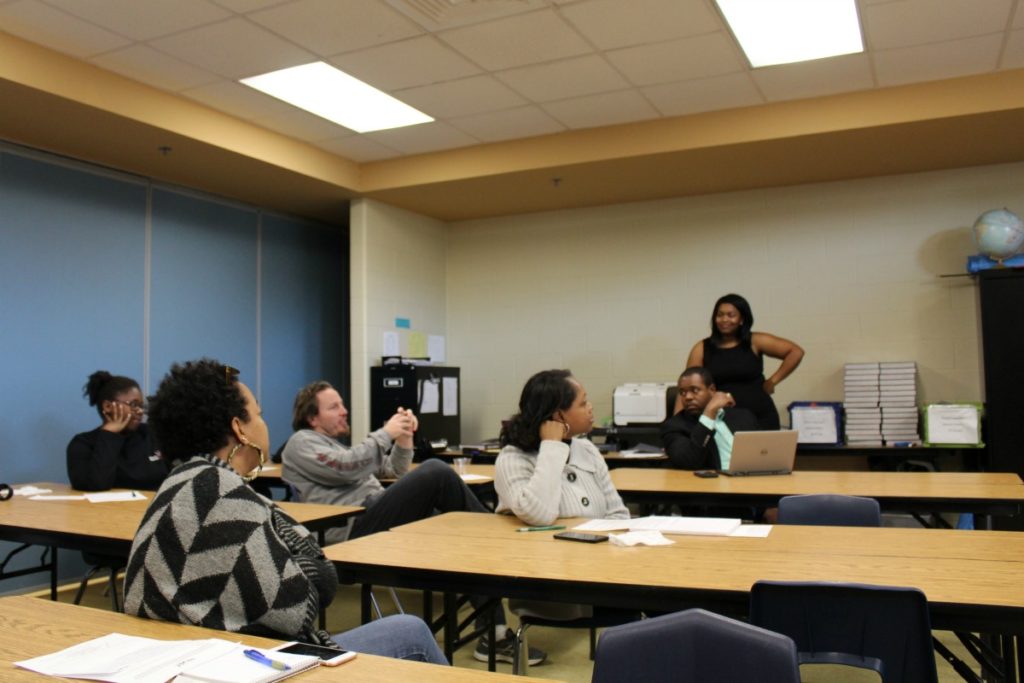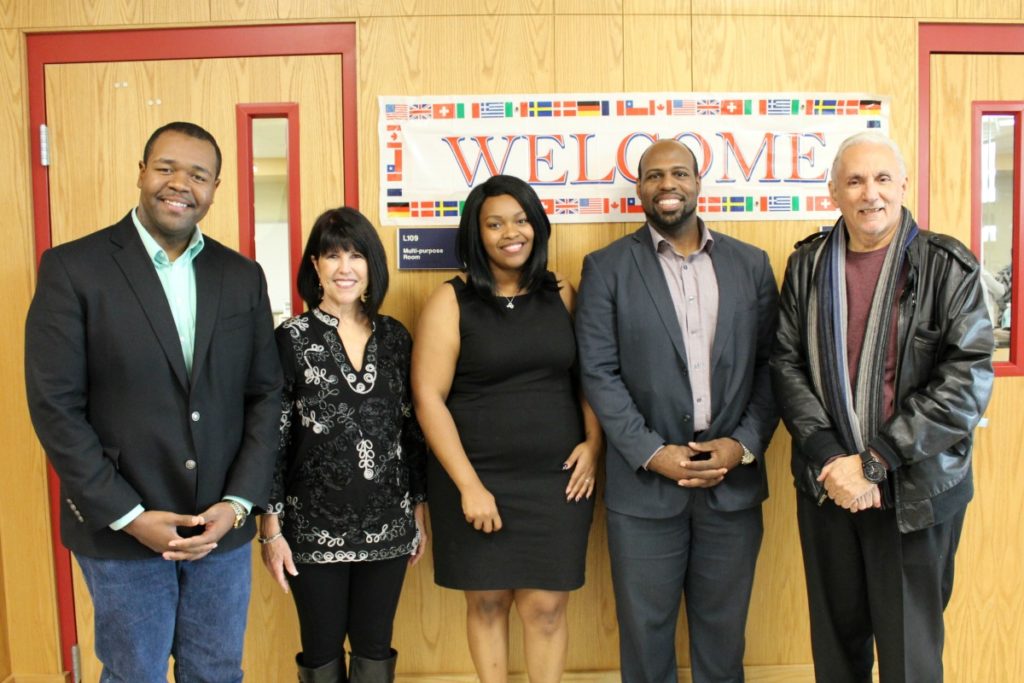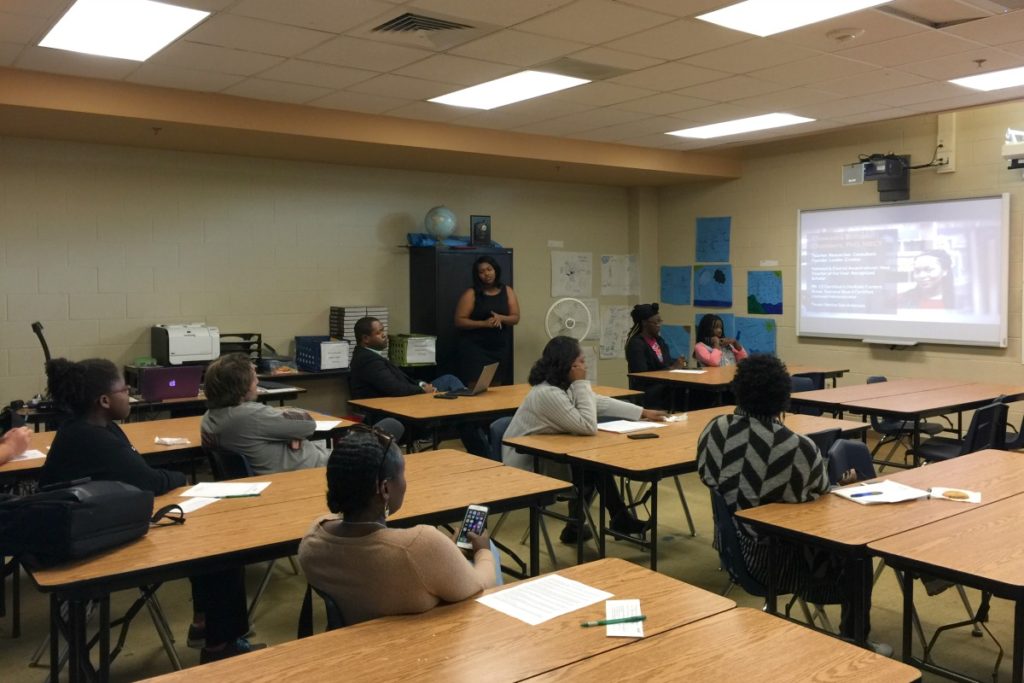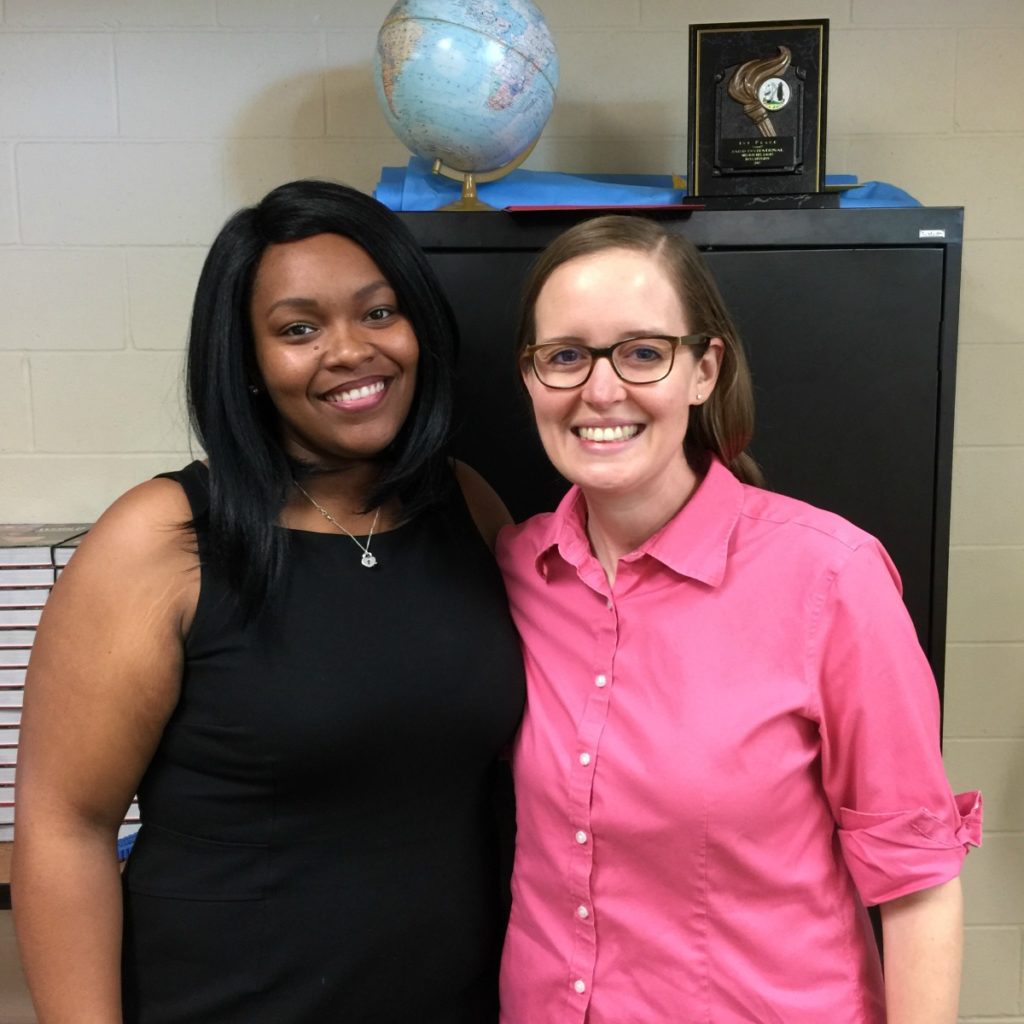
Single Seed Enrichment School is proposed public charter school that, once approved, will open in August 2019 in the Converse area, northeast of San Antonio. The school’s mission is “To create principled and knowledgeable world leaders through inquiry and innovative teaching.” I recently attended their first public forum at Pruitt Library and learned about the school’s educational model and leadership team.
School Model
Dr. Chawanna B. Chambers (known as Dr. Chae, pronounced “shay”), the founder of Single Seed, described the school’s vision as “to encourage individualized instruction for all students through competency-based and blended learning models that center character education from an international perspective.” That’s a lot to unpack, but once you break it down into smaller steps, it makes a lot of sense.

At full development, Single Seed will serve grades pre-K to 12 and will enroll approximately 630 students. In the first year, the school will offer a primary program, grades K–5, and grade 6 in its secondary program, adding a grade level every year. The teacher-student ratio will be 1:8 in pre-K, 1:22 in K–5; and 1:25 in 6–12, with aides shared across classrooms.
Some of the key features of the primary program (grades K–5) are mixed age grouping, teaching a growth mindset, and introducing empathy. In addition to reading and math, students will learn Spanish, PE, and music. Fine arts will be offered in an arts-infused lab.
The secondary program (grades 6-12) will build leaders through character education, community service, peer mediation, and a mentorship program. Every grade level will use technology and study some type of computer science or information technology subject.
A distinctive feature of Single Seed is the emphasis on competency-based education rather than traditional letter grades. Competency education happens when “teaching and learning are designed to ensure students are becoming proficient by advancing on demonstrated mastery.” (Source: CompetencyWorks)

To help those of us at the meeting to better understand competency education, Dr. Chae led us in an exercise. She presented us with a typical first-quarter report card, showing that a hypothetical third grade student had earned a C in math, and asked us to discuss their strengths and weaknesses. Of course, we all drew a blank—all we could do was speculate. Then, she presented us with a list of competencies (skills like rounding and estimating, based on the TEKS) and the student’s strengths, evaluated on a six-level scale from emerging to proficient to distinguished. Based on that list of competencies, we could tell that the student was good at following an algorithm for problem solving, but did not have a deeper sense of what they were doing with the numbers. This exercise was an a-ha moment for our group towards understanding the value of competency education.
A practical effect of competency education is that Single Seed will not have traditional report cards. For high school students applying to college, the scale can be converted to grades based on a 4.0 GPA. A competency-based report card will be an effective communication tool for parents and future teachers to understand a child’s progress.
To bring competency education to the classroom, Single Seed has a goal of providing one-to-one computing, with tablets in the primary school and Chromebooks in the secondary school. Dr. Chae has experience with online learning as a student, a teacher, and a curriculum developer, but for Single Seed she has chosen a blended learning learning model that combines computer work with classroom interaction.

Dr. Chae wants students to be excited about coming to school, so students in every grade level will work on personal interest projects. If a student chooses a project about, let’s say, magnetism, their work could cover a wide range of competencies, including English TEKS for writing their procedure.
At Single Seed, the school year will be longer than the required number of minutes. The calendar will include 16 professional development days for teachers, including one Friday almost every month. The school day will run from 7:30 a.m. to 3:30 p.m., with after school care available for a fee. Extracurricular activities will include UIL, student government, environmental club, chess club, NJHS/NHS, Key Club, foreign language society, and more.
Taken as a whole, the Single Seed education model will be unique to San Antonio, and will use many strategies to help its diverse student body to succeed.
Leadership Team
Dr. Chae is the founder of Single Seed and will serve as its superintendent and school leader. She has experience teaching different age groups in many different settings, from early childhood to college, and from classroom to online learning. She has worked internationally but is native to San Antonio. Her journey has not been a random walk, but a calculated path to help her gather the knowledge and strengths to fulfill her dream of founding a school.
In preparation for opening Single Seed as a public charter school, Dr. Chae, has been offering free tutoring in reading and math for grades 2–5 on Thursday afternoons at the Schaefer Library. The tutoring program is an opportunity for her to test drive her ideas for operating a Single Seed charter school and to build a presence in the community.

At the public forum, I met several Single Seed board members:
- Mordecai Brownlee, Ed.D., Vice President of Student Success at St. Philip’s College
- Gail Randle, Chief Administrative Officer, Elliptical International LLC
- Mario Marcel Salas, retired professor and former San Antonio city council member
The board combines local ties with high-level knowledge of what works in education. Dr. Chae also shared that one of her first hires for the school will be a social worker with the skills to learn about the students’ needs and the local knowledge of resources to help them.
Get Involved
The application stage is an important time for a proposed public charter school. Now that you know more about the Single Seed education model and leadership team, I hope you will be inspired to help them on their journey.

Dr. Chae will be speaking at another Single Seed public forum on Sunday, November 19, 2017 at 3 p.m. at Maranatha Bible Church. Reserve your tickets and tell your friends on Facebook. They are taking attendance at all the public meetings, and will include that data (as well as the data from this survey) in their charter application, which is due in December 2017. In early 2018, they may appear at the State Board of Education for an interview. The commissioner should make a decision about their charter application by June 2018.
For prospective families, enrollment will open in October 2018. By March 2018, families should have confirmation of their children’s enrollment. Then, the school will open in August 2019.
To stay informed about the school’s progress, you can follow them on social media on Facebook, Twitter, and Instagram. You can reach them through the website, singleseededu.org, by email contact@singleseededu.org, or by call/text at 210-660-8336.

It’s exciting to watch a new school being formed, especially one with as much unique energy as Single Seed Enrichment School. I will continue to follow their progress and hope for a strong start.
